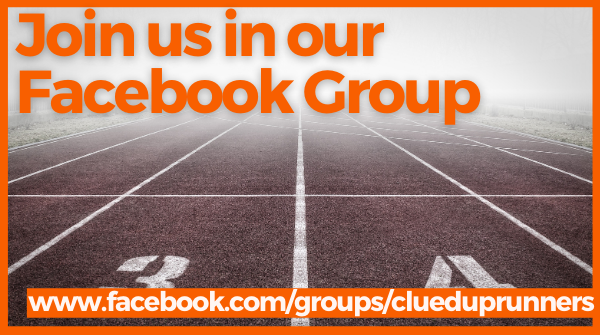A little while ago I ran a simple, Saturday-night Twitter poll that inadvertently divided the running community into two passionately distinct camps; those who loyally run in kilometres and those who incomprehensibly run in miles.
I was certain upon undertaking the aforementioned social media survey that the vast majority of the world's runners would confirm their metric allegiance. However, with echoes of the Star Wars universe, the rise of the Imperial masses seems to have overpowered the rebellious metre masters. Those running in kilometres are in the minority as milers, it transpires, now dominate the world's Strava metrics. Kilometre-runners are the Ewoks to the Mile-runners Stormtroopers.
This result surprised me, to say the least. As someone who has always run in kilometres, I unconsciously map and measure every run in this way. I have my favourite 5K and 10K routes, I mentally map my long runs with around 15-20KM in mind, I'm happy if my pace averages anything below a five minute kilometre and my goals are all metrically-minded.
Changing to miles is something I have never even contemplated and the thought of heading out for a quick three miles, instead of 5K, just does not compute with my brain. I have no concept of what a good mile pace would be and setting my weekly, monthly and annual goals in miles would be as alien as asking me to type this post in Spanish.
But running is a strange world, where kilometres and miles live oddly side-by-side. Our shorter races are always run in kilometres - the 5K and 10K bread and butter - while our longer races are always run in miles - the 13.1 mile half and the 26.2 mile marathon. No one thinks of a marathon as 42.19 kilometres and no one approaches a 10K thinking of it as 6.2 miles.
While training for the marathon, I ran more to time than I did to distance, but I still measured the runs in kilometres. Indeed, I believe the link between time and distance is the reason why runners are so loyal to one measurement over the other. Whether you run in kilometres or miles, if you have done so for a prolonged period of time, your body knows how long one unit of that measurement is. You become so familiar with the distance that, on those days when, heaven forbid, your watch battery has died, you can guesstimate how far you've run with relative accuracy. Like a natural odometer, your legs record a tally that is unconsciously recorded in your brain in either kilometres or miles.
Of course, for me, as someone who runs exclusively in kilometres, my brain has blessed me with the added complication of hypocritically computing all non-running distances in miles. I drive in miles, I travel on trains and in planes in miles, and I measure points on a map in miles. Ask me to do any of these things in kilometres and my brain simply shuts down, in much the same way as it does whenever my children ask me anything vaguely scientific; Dad, why's the sky blue? Dad, what's the difference between fog and mist? Dad, why do you sweat like a horse when you run?
So, what is the right unit with which to measure your running accomplishments? The answer, of course, is kilometres, and here is my justification; You get more of them in every run, meaning that the clocking up of KMs - and the reassuring buzz of your watch as you pass each one - provides a more frequent psychological boost to the average runner. Furthermore, kilometres are made up of metres, a simple unit of measurement that anyone who has ever sword fought with metre-rulers at school will be familiar with. The fact that there are a thousand metres in a kilometre is also simple to compute. Feet, inches and miles, however, are an entirely different and bewildering kettle of fish. How many of you know how many feet there are in a mile (no clues, you'll have to look it up)? And how many running tracks on earth are measured in feet over metres? Precisely none.
With pun fully intended, this is a debate that will run and run. However, while I respect those of my fellow runners whose allegiance is imperially-driven, I'm proud to be a kilometre Ewok. After all, remember what happened to the Stormtroopers on Endor?
Enjoyed this? Check out my new book: The Running Drug
From cancer diagnosis to marathon medal, via gloved fingers, blood tests and black toenails, The Running Drug tells the personal story of how Tim Beynon’s running addiction helped him to overcome cancer, finish his first marathon and discover a fitter, healthier future.
REVIEWS
"Tim Beynon found himself in a situation nobody would want, and he ran and wrote his way out of it with searing honesty and a self-deprecating wit. It's a practical, morbidly fascinating and inspiring read. It made me want to get myself checked out."
Paul Tonkinson, Runner's World columnist and comedian
"Tim’s 16-month journey is filled with worry, hope, belief, determination and achievement. Relatable and even funny at times, Tim overcomes so much and will hopefully help many other people think twice about the importance of health checks, at whatever age. The Running Drug made me smile, as well as think about all my male family and friends. The included information could be really helpful to them and may even save someone’s life. It’s a great book, highly recommended."
Nell McAndrew, 2.54 marathoner and model
![]() Next step: Join the conversation in our Facebook Group
Next step: Join the conversation in our Facebook Group
You may also be interested in...
Could your lucky socks boost your running performance?
Strava's depressing truths for injured runners







No comments:
Post a Comment